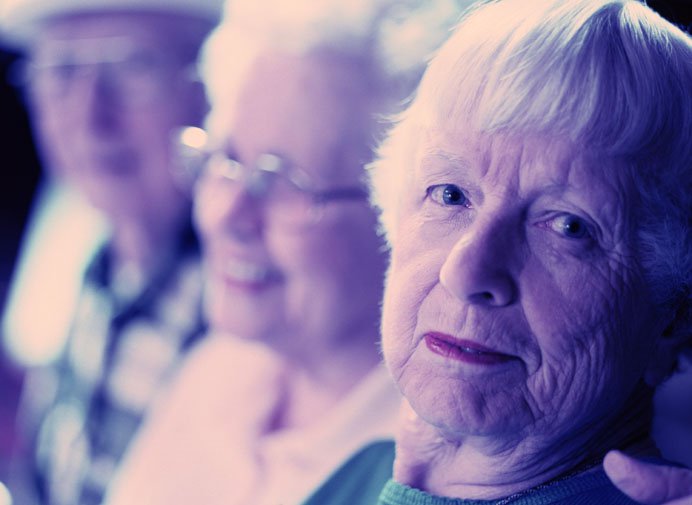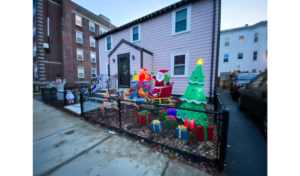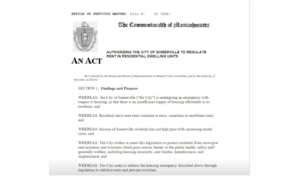One in ten elders lead troubled lives, but the issue is not commonly disclosed.
(Somerville Wire) – Elderly adults comprise a population that is highly vulnerable to abuse, and yet this problem is severely underreported. According to Norah Al-Wetaid, director of protective services at Somerville-Cambridge Elder Services, from June 2020 through May 2021, 801 reports of abuse were filed. Many elders live in isolating situations and have been particularly affected during the coronavirus, and as older people, they often depend on other caretakers for support. While it is difficult to pinpoint a specific common cause of abuse, many elders experience barriers to leaving abusive situations, such as financial survival and family upheaval.
“We get cases across the whole spectrum—physical, sexual, emotional abuse, financial exploitation, neglect, and our biggest one is self-neglect, [which is] over half of our cases,” said Al-Wetaid. “… We might get a case where an adult son is being physically abusive to their mother. Oftentimes, we’ll see situations where the mom doesn’t want to get their child in trouble. You’re still a mom, regardless of what’s happening with your child, so that’s a big struggle that we have.” She added, “We’ll get reports on people where there is yelling and name calling, really difficult dynamics. … [but that is] normal for their family dynamics, so that’s something that can be hard to tease out. We’re always looking for what’s the impact on the elder.”
Examples of interventions, said Al-Wetaid, including assistance with obtaining a restraining order, referral to domestic violence or sexual abuse supports, assistance with finding a temporary shelter, providing advocacy to prevent housing loss, and working with elders and family members to increase an understanding of social supports. Nathan Lamb, director of outreach and community relations at Somerville-Cambridge Elder Services, emphasized that protective services is not law enforcement. When a report is made, social workers will go into an assessment phase, similar to an investigation. They will work directly with the elder to sift through what is happening. Sometimes the question of whether the elder would like to leave their home is one that arises, and if that person chooses to stay, protective services will work on harm reduction. If the individual wants to leave, protective services will try to facilitate that process.
According to Ashley Speliotis, director of the Somerville Council on Aging, there are many reasons why an elder may choose not to report a dangerous situation. They are usually motivated by some kind of unease about what could happen.
“People are fearful to speak out. A lot of times, they are dependent on the person as their caregiver,” said Speliotis. “A lot of times the abuse, especially the verbal abuse, has made the person so anxious and fearful that maybe they start to believe that what the person is telling them is true, when looking from the outside in, that’s definitely not the case. But I think a lot is that fear to report, the fear that they might not be able to live in their homes any longer or that they will have to hire somebody to help them. It really does boil down to a lot of fear and anxiety about reporting.”
Greta Hagen, director of philanthropy and engagement at RESPOND, an organization that works to prevent domestic violence in Somerville, said that she thinks the pandemic has intensified conditions that might lead to physical abuse in the elderly population.
“The same as with any of the abuse we see, it is really about power and control,” said Hagen. “In the time of COVID, we’ve been hearing about what has exacerbated abuse—is it that drug and alcohol use is on the rise, or is that mental health challenges are really amplified? These could all be present in an abusive relationship, but when it comes down to it, abuse is the decision of the abuser. It is about exerting control over the person they are victimizing and coercing them.” Regarding the numbers of abuse cases impacted by the pandemic, she added, “It’s hard to show what we can’t see. At RESPOND, we did experience a drop in calls to our support line around the time when the first lockdowns happened. … We definitely don’t think it was a decrease in instances. If [someone’s] abusive partner or caregiver was no longer going to a different job or to work, they were stuck at home with them, so it was hard to get a moment to call. People were homeschooling their kids, so it was hard to get a private moment to make a call that would be hard to make.”
To intervene when cases of elder abuse do happen, it is important to recognize the warning signs, said Speliotis. People can try to observe if there are differences in the elder’s behavior.
“What people can do is to check in on their older adult loved ones and check in with their caregivers, to make sure both the older adult and caregivers have the support that they need and have an open and honest dialogue,” said Speliotis. “If you notice a change in behavior of your loved one, you should try to have that conversation with them. Are you noticing that they suddenly don’t have access to their money or don’t have money when they once did? Are you noticing that they’re walking differently or have physical signs of abuse? Or did they used to love to go out, and now they’re staying in all the time? … It doesn’t mean to automatically go and jump to the conclusion, but it does mean that it’s worth it to have a good conversation with them.”
All Somerville Wire articles may be republished by community news outlets free of charge with permission and by larger commercial news outlets for a fee. Republication requests and all other inquiries should be directed to somervillewire@binjonline.org.
SUBSCRIBE TO THE FREE SOMERVILLE WIRE EMAIL NEWSLETTER: https://eepurl.com/hpBYPv
Shira Laucharoen is assistant director of the Boston Institute for Nonprofit Journalism and assistant editor and staff reporter of the Somerville Wire.





